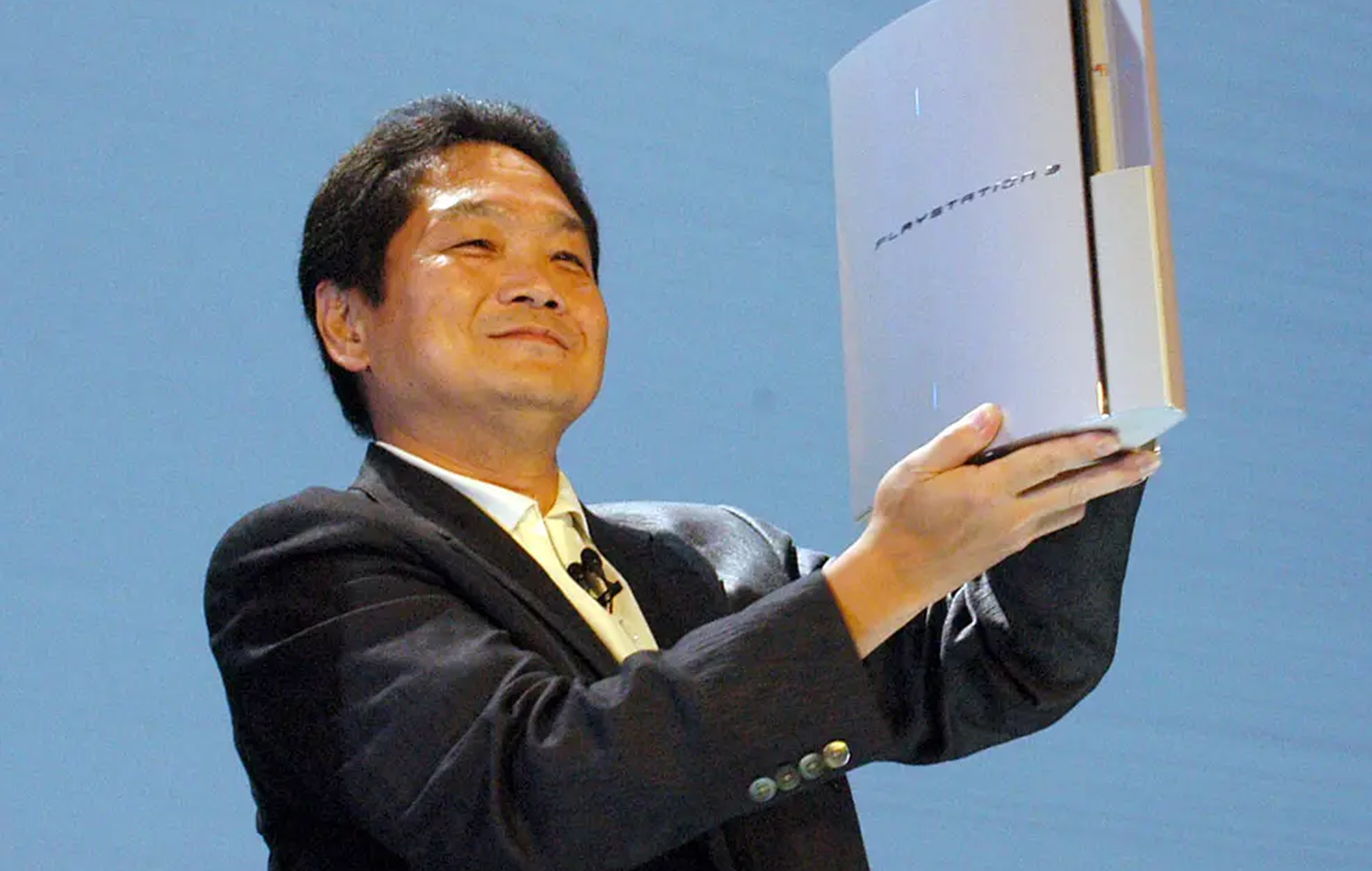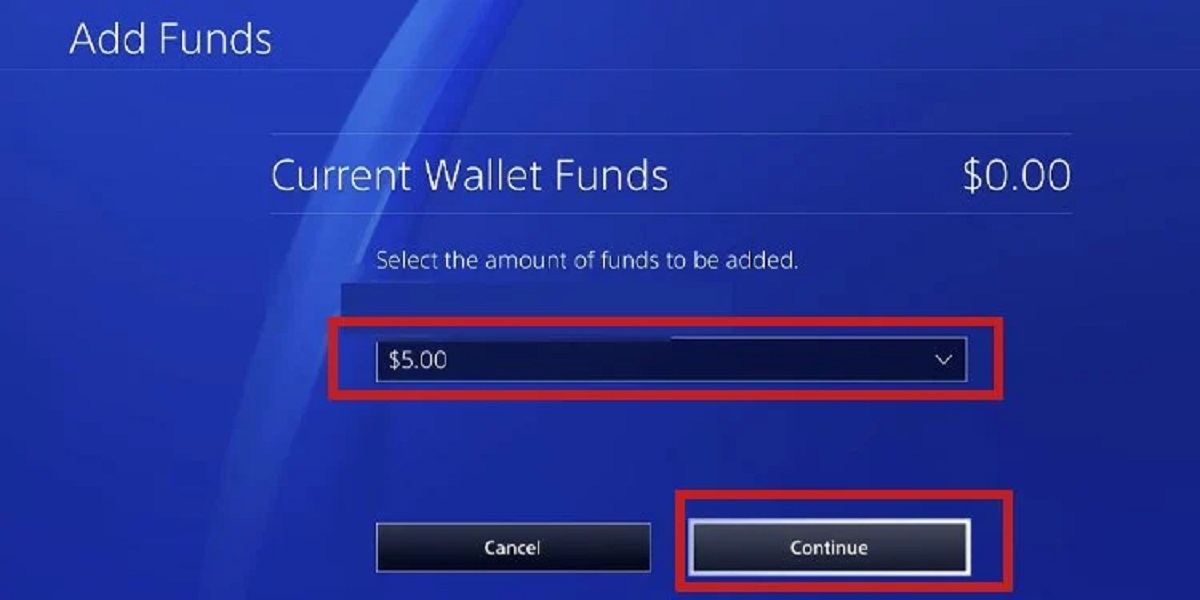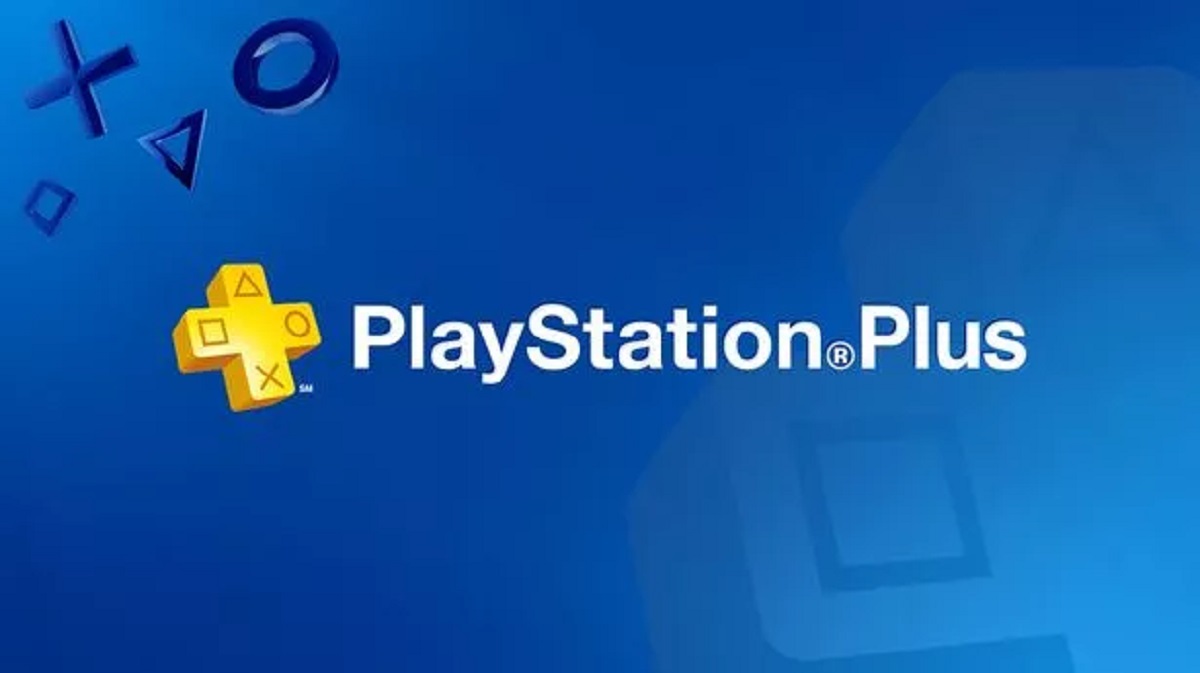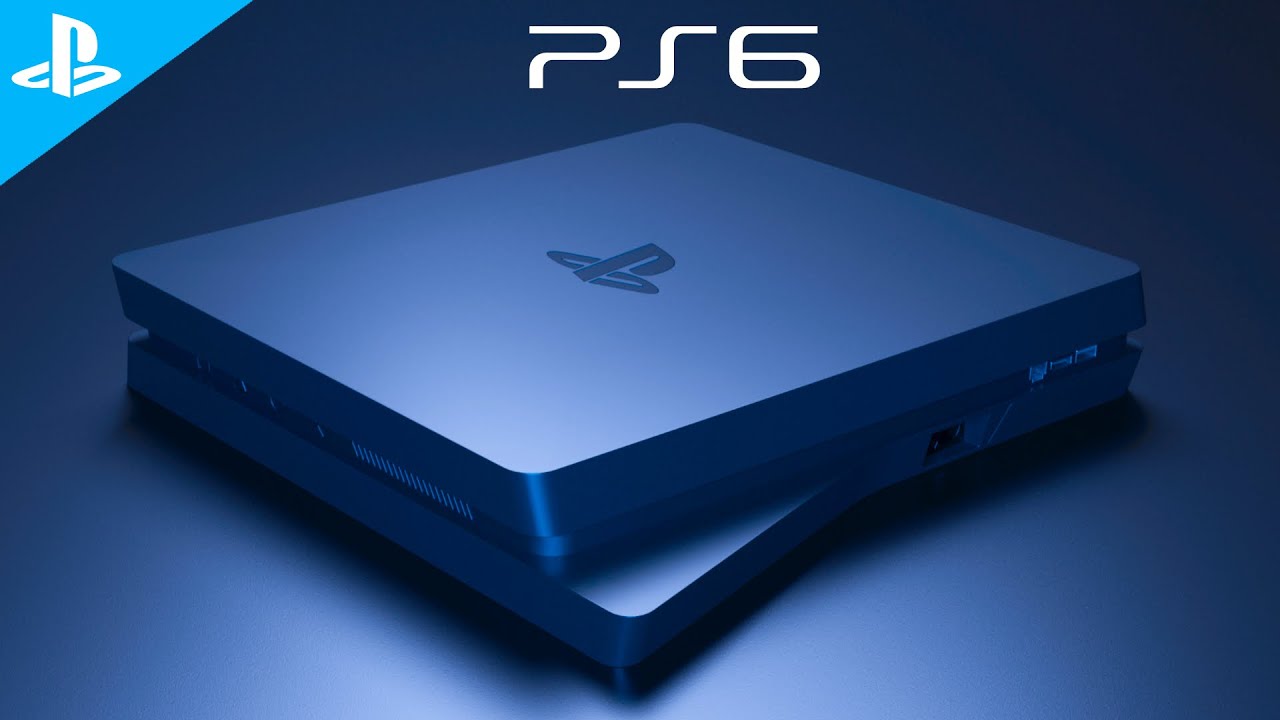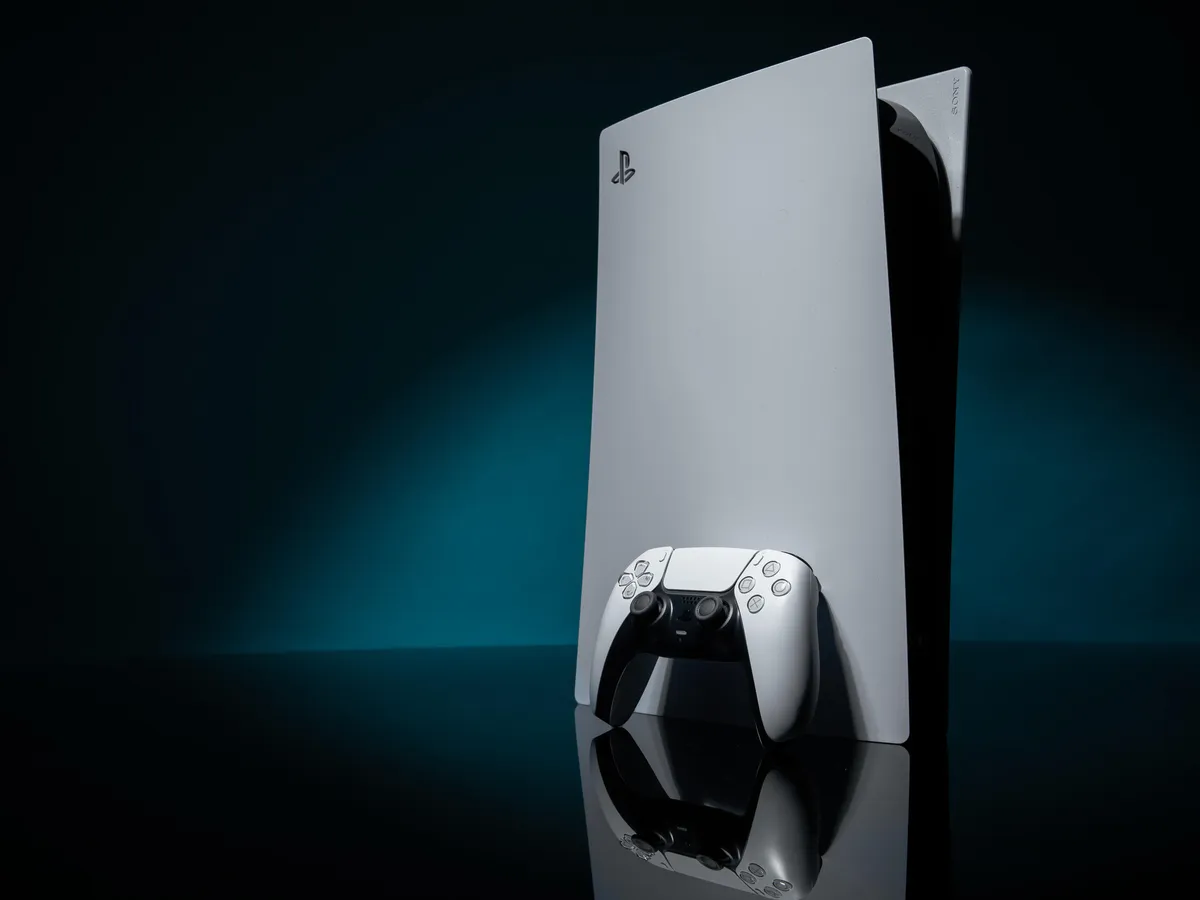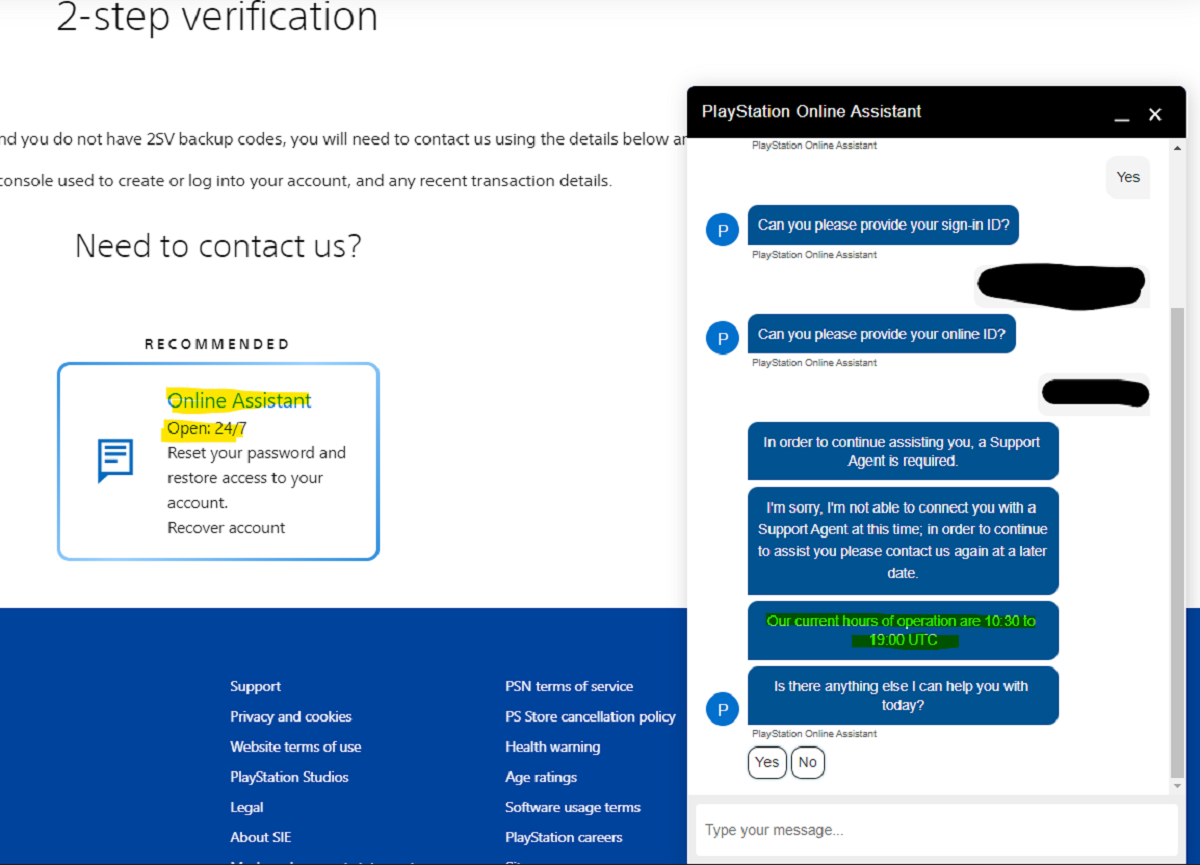Introduction
Welcome to the fascinating world of PlayStation! Since its debut in 1994, PlayStation has become a prominent name in the gaming industry, revolutionizing the way we play and experience interactive entertainment. In this article, we will dive deeper into the world of PlayStation, exploring the key players who make this iconic gaming console a reality.
At the heart of the PlayStation empire is Sony Corporation, a global conglomerate renowned for its innovative technology and entertainment offerings. Let’s take a closer look at Sony’s role in shaping the PlayStation brand and its evolution over the years.
Sony Corporation, established in 1946 in Japan, has not only made its mark in electronics but also in the entertainment industry. With a commitment to pushing boundaries and delivering cutting-edge experiences, Sony embarked on the gaming journey, giving birth to the original PlayStation console.
Throughout the years, PlayStation has seen multiple iterations and advancements, ruling over the hearts of gamers with its immersive gameplay, excellent graphics, and an extensive library of games. The journey of PlayStation has been divided into various console generations, each offering a unique experience to its users.
As PlayStation evolved, numerous hardware manufacturers played a crucial role in producing the iconic hardware that powers the gaming consoles. From the intricate circuitry to the sleek and ergonomic designs, these manufacturers ensure that PlayStation consoles deliver a seamless and exceptional gaming experience.
However, hardware alone is not enough to create an immersive gaming experience. Behind every successful console lies the talent of software developers who create captivating games and engaging software. Without them, PlayStation consoles would be mere pieces of hardware. These developers push the boundaries of creativity and innovation to bring gamers unforgettable gaming experiences.
PlayStation wouldn’t be complete without its diverse range of accessories, designed to enhance gameplay and provide more immersive experiences. From wireless controllers to virtual reality headsets, these accessories take gaming to new heights and cater to the unique preferences of gamers.
Lastly, we cannot overlook the impact of PlayStation Network, where gamers come together to connect, compete, and collaborate. PlayStation Network provides a platform for online gameplay, digital purchases, and a vibrant gaming community, solidifying PlayStation’s presence in the online realm.
In this article, we will explore each of these aspects, shedding light on the key players responsible for making PlayStation the gaming powerhouse it is today. So, grab your controller and get ready for an exciting journey through the incredible world of PlayStation!
Sony Corporation
Sony Corporation, founded in 1946 by Masaru Ibuka and Akio Morita, is a Japanese multinational conglomerate known for its innovation and excellence in technology and entertainment. Headquartered in Tokyo, Japan, Sony has become a dominant force in various industries, including electronics, gaming, music, film, and television.
With a rich history spanning over seven decades, Sony has continually pushed the boundaries of creativity and technological advancements. It has become synonymous with quality and reliability, earning the trust and loyalty of consumers worldwide.
Sony’s involvement in the gaming industry began in the early 1990s with the launch of the original PlayStation console in 1994. This marked the company’s entry into the world of gaming, and it quickly established itself as a serious competitor to established gaming companies.
Over the years, Sony’s PlayStation brand has evolved and grown, introducing new consoles and innovations that have captured the imagination of gamers. The success of PlayStation can be attributed to Sony’s commitment to delivering groundbreaking technology, immersive gaming experiences, and a robust library of games.
PlayStation has become a key revenue generator for Sony, driving the company’s growth and solidifying its position as a leader in the gaming industry. Sony’s dedication to excellence and innovation is reflected in each successive PlayStation console, offering improved performance, enhanced graphics, and innovative features.
Moreover, Sony’s expertise in electronics and hardware manufacturing has been vital in creating cutting-edge gaming consoles. With a focus on ergonomic design, powerful processors, and efficient cooling systems, Sony ensures that PlayStation consoles deliver an exceptional gaming experience.
Beyond gaming, Sony Corporation is also renowned for its contributions in various entertainment sectors. It has a vast portfolio of products and services, including music labels, motion picture studios, television networks, and streaming platforms. This diversified approach allows Sony to leverage its strengths and provide a holistic entertainment experience to consumers worldwide.
With a strong commitment to innovation and a deep understanding of consumer needs, Sony Corporation continues to redefine the boundaries of technology and entertainment. It remains at the forefront of the gaming industry, driving innovation and captivating gamers with its groundbreaking PlayStation consoles.
In the next sections, we will explore the fascinating history of PlayStation, the hardware manufacturers behind the consoles, the talented software developers who create exceptional games, the array of accessories that enhance the gaming experience, and the vibrant PlayStation Network that brings gamers together. So, let’s embark on this remarkable journey through the world of PlayStation!
History of PlayStation
The history of PlayStation dates back to the early 1990s when Sony Corporation embarked on a mission to create a gaming console that would rival the existing players in the market. The result was the launch of the original PlayStation console in Japan on December 3, 1994.
Contrary to expectations, the PlayStation quickly gained popularity and surpassed its competitors in both sales and critical acclaim. Its success can be attributed to a few key factors, including its superior graphics, vast library of games, and user-friendly interface.
The PlayStation’s success led to the release of the PlayStation 2 in 2000, which further solidified Sony’s dominance in the gaming industry. The PlayStation 2 became the best-selling console of all time, with more than 155 million units sold worldwide. It introduced innovations such as DVD playback and online gaming capabilities, propelling the PlayStation brand to new heights.
In 2006, Sony launched the PlayStation 3, which brought with it significant technological advancements, including the inclusion of a Blu-ray player and improved graphics capabilities. While initially facing some challenges due to its high price point, the PlayStation 3 eventually gained traction and became a popular choice among gamers.
Sony continued its success with the release of the PlayStation 4 in 2013. With advanced features such as improved graphics, enhanced online capabilities, and a vast library of games, the PlayStation 4 quickly became the go-to console for many gamers around the world. It cemented Sony’s position as a leader in the gaming industry, selling over 110 million units.
Building on the success of its predecessors, Sony introduced the PlayStation 5 in November 2020. The PlayStation 5 boasts cutting-edge technology, including faster load times, ray tracing capabilities, and haptic feedback controllers, providing gamers with a truly immersive experience.
Throughout its history, the PlayStation brand has continuously evolved, adapting to changing technologies and consumer demands. Sony’s commitment to innovation has resulted in consoles that not only deliver exceptional gaming experiences but also serve as multimedia entertainment hubs.
Looking ahead, Sony aims to continue pushing boundaries and revolutionizing the gaming industry. With its strong legacy and commitment to excellence, the PlayStation brand remains a force to be reckoned with, captivating gamers with each new generation of consoles.
In the following sections, we will explore the key players who contribute to the success of PlayStation, including the hardware manufacturers behind the consoles, the software developers who create memorable gaming experiences, the array of accessories that enhance gameplay, and the PlayStation Network that connects gamers from around the world. So, let’s delve deeper into the fascinating world of PlayStation!
PlayStation Console Generations
The journey of PlayStation has been marked by distinct console generations, each representing a significant leap in gaming technology and experiences. Let’s explore the different PlayStation console generations that have captivated gamers throughout the years.
1. PlayStation (1994-2006): The original PlayStation, also known as the PlayStation 1, set the stage for Sony’s entry into the gaming industry. With its sleek design and CD-based games, it introduced gamers to a new era of gaming. The PlayStation quickly gained popularity, boasting a rich library of games that appealed to a wide audience.
2. PlayStation 2 (2000-2013): The PlayStation 2, or PS2, holds the title of the best-selling console of all time. With its powerful hardware and revolutionary DVD playback capabilities, it revolutionized the gaming industry. The PS2 brought forth iconic franchises, introduced online gaming through the PlayStation Network, and solidified Sony’s dominance in the market.
3. PlayStation 3 (2006-2017): The PlayStation 3, or PS3, introduced gamers to high-definition gaming. With its advanced Cell processor and Blu-ray player, it pushed the boundaries of graphics and multimedia capabilities. Despite initial challenges, the PS3 gained momentum, offering an extensive library of exclusive games and expanding online features.
4. PlayStation 4 (2013-present): The PlayStation 4, or PS4, took gaming to new heights. With its powerful hardware, seamless online connectivity, and an impressive lineup of games, it became the go-to console for millions of gamers worldwide. The PS4 introduced features like Share Play and PlayStation VR, enhancing the gaming experience and bringing communities closer together.
5. PlayStation 5 (2020-present): The PlayStation 5, or PS5, represents the latest generation of PlayStation consoles. With its blazing-fast SSD, stunning graphics, and innovative DualSense controller, it offers next-level gaming experiences. The PS5 introduces advancements like ray tracing, 3D audio, and backward compatibility, allowing gamers to dive into the future of gaming while enjoying their favorite PlayStation titles.
Each PlayStation console generation has brought unique advancements and experiences, solidifying Sony’s position as a leader in the gaming industry. From the groundbreaking debut of the original PlayStation to the cutting-edge technology of the PS5, each console has pushed the boundaries of what gaming can be.
As we continue our exploration of PlayStation, we will now turn our attention to the key players behind the hardware manufacturing, software development, accessories, and the vibrant PlayStation Network. Join us on this exciting journey through the world of PlayStation!
PlayStation Hardware Manufacturers
Creating a high-quality gaming console requires collaboration between various hardware manufacturers who specialize in different components. Sony Corporation, the driving force behind PlayStation, partners with these manufacturers to design and produce the hardware that powers the PlayStation consoles. Let’s explore some of the key hardware manufacturers involved in bringing PlayStation to life.
1. Sony Interactive Entertainment (SIE): As the gaming division of Sony Corporation, SIE plays a crucial role in the development and production of PlayStation hardware. SIE oversees the overall design, engineering, and manufacturing process, ensuring that each console meets the highest quality standards.
2. AMD: Advanced Micro Devices (AMD) is a leading hardware manufacturer that collaborates with Sony to provide the processors for PlayStation consoles. AMD’s innovative CPU and GPU technologies deliver the high-performance computing power that drives the graphics and gameplay experiences on PlayStation.
3. NXP Semiconductors: NXP Semiconductors, a semiconductor manufacturer, contributes to the production of PlayStation consoles by providing essential components such as system-on-a-chip (SoC), which integrates the CPU, GPU, memory, and other key elements into a single chip. This integration ensures efficient performance and power management.
4. Samsung: Samsung, a global leader in consumer electronics, collaborates with Sony to supply the memory modules for PlayStation consoles. These memory modules are responsible for storing game data, software, and user profiles, providing fast and reliable access to information during gameplay.
5. Seagate: Seagate, a renowned storage solutions manufacturer, partners with Sony to supply the hard drives used in PlayStation consoles. These high-capacity drives ensure that gamers have ample space to store their game libraries, downloadable content, and saved game files.
6. Foxconn: Foxconn Technology Group, a global electronics manufacturer, plays a vital role in the assembly and production of PlayStation consoles. With its expertise in manufacturing and supply chain management, Foxconn ensures the efficient manufacturing of PlayStation hardware while maintaining high quality standards.
By collaborating with these reputable hardware manufacturers, Sony ensures that each PlayStation console delivers a seamless and immersive gaming experience. These manufacturers bring their expertise, technological advancements, and dedication to quality, contributing to the success of PlayStation consoles.
Now that we’ve explored the hardware side of PlayStation, it’s time to dive into the world of software development, where talented individuals and studios create the captivating games that define the PlayStation experience. Join us in the next section as we explore the realm of PlayStation software developers!
PlayStation Software Developers
Behind every successful PlayStation console lies a diverse and talented community of software developers who bring the virtual worlds to life. These developers play a crucial role in creating captivating games and software that enthrall gamers and push the boundaries of interactive entertainment. Let’s explore some of the notable software developers who contribute to the rich library of games on PlayStation.
1. Sony Interactive Entertainment (SIE) Worldwide Studios: As the gaming division of Sony Corporation, SIE Worldwide Studios is home to numerous first-party development teams. These talented studios, including Naughty Dog, Santa Monica Studio, and Guerrilla Games, create exclusive titles that define the PlayStation experience. With their exceptional storytelling, stunning visuals, and innovative gameplay mechanics, SIE Worldwide Studios’ games often become iconic franchises on PlayStation consoles.
2. Third-Party Developers: Beyond the first-party studios, a vast network of third-party developers also contributes to the PlayStation gaming ecosystem. Renowned game studios such as Electronic Arts, Ubisoft, and Activision collaborate with Sony to create multi-platform titles as well as exclusives for PlayStation. These developers bring a diverse range of genres, art styles, and gameplay experiences to the PlayStation library, catering to the varied preferences of gamers.
3. Independent Game Developers: The rise of independent game development has brought a fresh wave of creativity to PlayStation consoles. Independent developers, or “indies,” often deliver unique and innovative experiences, pushing the boundaries of game design. Sony supports these developers through initiatives such as PlayStation Indies, providing them with resources and exposure, allowing their games to reach a wider audience on the PlayStation platform.
4. Epic Games: Epic Games, the creator of the popular game engine Unreal Engine, plays a significant role in the PlayStation gaming ecosystem. Many developers utilize Unreal Engine to power their games on PlayStation consoles, benefiting from its robust features, powerful graphics capabilities, and ease of development.
5. Global Studios: PlayStation’s reach extends globally, encompassing talented game developers from different regions. From Japan’s Capcom and Square Enix to Europe’s CD Projekt Red and Guerrilla Games, and North America’s Rockstar Games and Bethesda Softworks, global studios contribute their unique perspectives and styles to the PlayStation gaming experience.
These software developers are the driving force behind the diverse and captivating library of games available on PlayStation consoles. Their creativity, technical expertise, and passion for gaming result in unforgettable experiences that immerse players in vibrant worlds, compelling narratives, and thrilling gameplay.
As we continue our exploration of PlayStation, let’s now shift our focus to the array of accessories that enhance gameplay and provide new ways to experience the world of PlayStation.
PlayStation Accessories
PlayStation consoles are not just limited to hardware and software; they are also complemented by a wide range of accessories designed to enhance the gaming experience and provide new ways to interact with the virtual worlds. These accessories offer additional functionality, convenience, and immersion, catering to the unique preferences of gamers. Let’s explore some of the notable PlayStation accessories that have become integral parts of the gaming experience.
1. DualSense Wireless Controller: The DualSense wireless controller is the latest addition to the PlayStation accessory lineup, designed specifically for the PlayStation 5. With its immersive haptic feedback and adaptive triggers, it offers a new level of tactile sensations, making gameplay more realistic and engaging. The DualSense also features a built-in microphone, integrated speaker, and a touchpad, allowing for innovative gameplay mechanics.
2. PlayStation VR: PlayStation VR is a virtual reality headset that enables players to immerse themselves in a virtual world. With its high-quality display, precise motion tracking, and 3D audio technology, PlayStation VR provides a truly immersive gaming experience. From thrilling action adventures to captivating simulation games, PlayStation VR opens up a whole new dimension of gaming.
3. PlayStation Camera: The PlayStation Camera is an essential accessory for PlayStation VR, allowing for precise tracking of the player’s movements. It also enables face recognition and voice control features, enhancing the overall interactive experience. Additionally, the PlayStation Camera enables broadcasting and video chatting functionalities.
4. PlayStation Media Remote: The PlayStation Media Remote is a convenient accessory that simplifies multimedia navigation on PlayStation consoles. With dedicated buttons for playback control, volume adjustment, and quick access to essential functions, it provides a seamless and effortless way to enjoy streaming services, Blu-ray discs, and other media on the console.
5. PlayStation Headsets: Sony offers a range of PlayStation headsets designed to deliver high-quality audio and enhance communication during gaming sessions. From wireless headsets with virtual surround sound capabilities to specialized gaming headsets with built-in microphones, these accessories provide immersive audio and clear voice chat, allowing players to fully immerse themselves in the game.
6. PlayStation Charging Dock: The PlayStation Charging Dock is a convenient accessory for gamers with multiple wireless controllers. It allows for easy charging and storage of controllers, ensuring they are always ready for use. With a sleek design and minimal footprint, the charging dock keeps controllers organized and eliminates the need for tangled cables.
These accessories serve to enhance the overall gaming experience on PlayStation consoles, offering convenience, immersion, and new ways to interact with the games. As technology continues to advance, we can expect even more innovative and exciting accessories to further elevate the gaming experience on PlayStation.
Now that we have explored the world of PlayStation accessories, let’s turn our attention to the vibrant online community and multiplayer capabilities offered by the PlayStation Network.
PlayStation Network
The PlayStation Network (PSN) has revolutionized the way gamers connect, compete, and collaborate, offering a robust online platform that brings the gaming community together. Spanning across various PlayStation consoles, PSN provides a wide range of features and services that enhance the gaming experience. Let’s explore the key aspects of the PlayStation Network.
1. Online Multiplayer: One of the biggest advantages of the PlayStation Network is its robust online multiplayer capabilities. Gamers can connect with friends and players from around the world, forming teams, competing in multiplayer matches, and engaging in cooperative gameplay experiences. Whether it’s rallying with friends in a first-person shooter or collaborating on intense dungeon raids, PSN bridges the gap between players, creating a vibrant and dynamic online community.
2. PlayStation Plus: PlayStation Plus is a premium subscription service that offers a multitude of benefits to its members. Subscribers gain access to free monthly games, exclusive discounts on digital purchases, early access to demos, and automatic cloud storage for game saves. PlayStation Plus also provides online multiplayer access, allowing gamers to engage in competitive battles with players across the globe.
3. PlayStation Store: The PlayStation Store is an online marketplace where users can purchase and download a vast array of digital content, including games, downloadable content (DLC), add-ons, and more. With a few clicks, gamers can explore a vast library of titles, browse through exclusive deals, and instantly download their purchases, eliminating the need for physical discs.
4. Share and Broadcast: PSN allows gamers to share their achievements, gameplay moments, and screenshots with the community. With built-in social sharing features, players can capture and upload screenshots and videos directly from their consoles. Furthermore, the PSN integration with popular streaming platforms like Twitch and YouTube enables gamers to stream their gameplay live, fostering a sense of community and allowing others to spectate and interact in real-time.
5. User Profiles and Communities: PlayStation Network provides users with customizable profiles, where they can showcase their gaming preferences, trophies, and favorite games. Gamers can join or create communities based on shared interests, game genres, or specific titles, allowing for deeper engagement and connections within the gaming community.
6. Events and Tournaments: PSN regularly hosts events and tournaments where gamers can compete against each other to showcase their skills. These events span across various game genres and provide opportunities for players to win rewards, earn recognition, and test their abilities against the best in the gaming community.
The PlayStation Network has transformed gaming into a social and interconnected experience, allowing players to connect with friends, meet new gamers, and enjoy a wide range of online features and services. It has become a hub that not only facilitates gameplay but also fosters a sense of community and collaboration among gamers worldwide.
As we conclude our exploration of the PlayStation Network, we can appreciate the seamless integration of online capabilities and community-building elements that make PlayStation an unparalleled gaming platform.
Conclusion
PlayStation has undoubtedly made a tremendous impact on the gaming industry since its inception in 1994. The success of PlayStation can be attributed to a combination of factors, including Sony Corporation’s commitment to innovation, the collaboration with hardware manufacturers, the talent of software developers, the array of accessories, and the vibrant online community through the PlayStation Network.
Sony Corporation, with its rich history and dedication to pushing boundaries, established PlayStation as a prominent gaming brand. Through each console generation, from the original PlayStation to the latest PlayStation 5, Sony has consistently delivered cutting-edge technology, immersive gaming experiences, and an extensive library of games.
Hardware manufacturers like AMD, NXP Semiconductors, and Samsung have played instrumental roles in creating powerful and visually stunning PlayStation consoles. Their expertise in producing processors, memory modules, hard drives, and other components ensures that gamers can enjoy seamless and immersive gameplay.
The software developers, both first-party studios like Sony Interactive Entertainment Worldwide Studios and third-party developers, continuously push the boundaries of creativity, crafting captivating games that define the PlayStation experience. These developers have brought us iconic franchises, innovative gameplay mechanics, and unforgettable narratives.
PlayStation’s range of accessories, such as the DualSense controller, PlayStation VR, and PlayStation Camera, provide gamers with enhanced immersion, convenience, and new ways to interact with games. These accessories contribute to creating a more immersive and enjoyable gaming experience.
The PlayStation Network serves as a hub for gamers to connect, compete, and collaborate. With online multiplayer capabilities, PlayStation Plus benefits, the PlayStation Store, sharing and broadcasting features, user profiles, and communities, the PlayStation Network fosters a sense of community and connectivity among players worldwide.
In conclusion, PlayStation has revolutionized the gaming industry and has become an integral part of the lives of gamers around the world. Its commitment to innovation, collaboration with talented individuals and companies, and dedication to providing exceptional gaming experiences have solidified its position as a leading gaming brand. As technology advances, we can look forward to the continued evolution of PlayStation, promising even more immersive gaming experiences and innovations in the years to come.







